Go Lean Commentary
Keeping up with the Joneses.
It is so hard to be an island, off the coast of a continent.
Or is it?!
The island-nation of New Zealand seems to have gotten “it” right. What is the “it”? The management of the Coronavirus COVID-19 pandemic. They have demonstrated how to do “it” right.
… and in doing so have provided us in the Caribbean a role model for how to do “it”. They are the Joneses we need to keep up with.
See how New Zealand’s success is being described in this globally respected Trade Journal, Contagion® – a fully integrated news resource covering all areas of infectious disease; (also see the related VIDEO):
Title: How Did New Zealand Control COVID-19?
By: Kevin Kunzmann Contagion Live
New Zealand, a modern small island nation, has become an emblematic champion of proper prevention and response to the coronavirus 2019 (COVID-19) pandemic.
Leading into this weekend, the country of approximately 5 million has just 2 dozen active COVID-19 cases—a full month after having reported absolutely none, on the backbone of strict initial travel policies, science-based government action, and strategies responsive to testing limitations.
What else went into New Zealand’s pandemic response—and what could serve as guidance for other countries?
A new correspondence published in The New England Journal of Medicine from a team of New Zealand-based investigators at the University of Otago highlighted the public health successes of the country—measures which have brought New Zealand to the post-elimination phase of response approximately 100 days after its first case.
The trio of authors—Michael G. Baker, MB, ChB; Nick Wilson, MB, ChB, MPH; Andrew Anglemyer, PhD, MPH—wrote SARS-CoV-2 introduction to New Zealand was known to be imminent early on, due to a great rate of visiting tourists and students from Europe and China annually.
In fact, their disease models showed estimated wide pandemic spread, with capability to “overwhelm” the healthcare system and disproportionately affect Maori and Pacific persons.
“New Zealand began implementing its pandemic influenza plan in earnest in February, which included preparing hospitals for an influx of patients,” they wrote. “We also began instituting border-control policies to delay the pandemic’s arrival.”
The first New Zealand COVID-19 case was diagnosed February 26, around the same time that global agencies began reporting the SARS-CoV-2 infection was behaving more like a severe acute respiratory syndrome (SARS) than an influenza—giving investigators hope for containment.
Because of lacking testing and contact-tracing capability in mid-March, the country’s leaders made a dramatic and critical switch in strategy: from mitigating the disease, to eliminating it.
A countrywide lockdown—Alert Level 4—was implemented on March 26.
“After 5 weeks, and with the number of new cases declining rapidly, New Zealand moved to Alert Level 3 for an additional 2 weeks, resulting in a total of 7 weeks of what was essentially a national stay-at-home order,” authors wrote.
It was in early May that the last identified COVID-19 case was observed in the community; with the patient placed in isolated, the country had ended its community spread. On June 8, the New Zealand moved to Alert Level 1—in 103 days, they had declared the pandemic over in the country.
At the time of the paper’s publishing, New Zealand had just 1569 cases, 22 deaths, and a coronavirus-related mortality of 4 per 1 million—the lowest reported rate among 37 nations in the Organization for Economic Cooperation and Development.
“Many parts of the domestic economy are now operating at pre-COVID levels,” authors wrote. “Planning is under way for cautious relaxing of some border-control policies that may permit quarantine-free travel from jurisdictions that have eliminated COVID-19 or that never had cases.”However, the post-elimination stage of the pandemic is not certain for safety. The authors noted the only cases identified in the country are via international travelers kept in government-managed quarantine or isolation for 2 weeks post-arrival. Failures of border control or continued quarantine/isolation policies could result in new spread.
“New Zealand needs to plan to respond to resurgences with a range of control measures, including mass masking, which hasn’t been part of our response to date,” authors wrote.
But there are takeaways from the early and immediate successes of the New Zealand response. The authors credited the combination of immediate risk assessment driven by science, with the decisive actions of the government.
Additionally, the country’s border-control strategies, as well as both community-based and individual case-based control measures, were overall effective in eliminating the virus’ presence when mitigation was no longer feasible.
Lastly, the authors praised their leader’s message.“Prime Minister Jacinda Ardern provided empathic leadership and effectively communicated key messages to the public—framing combating the pandemic as the work of a unified “team of 5 million”—which resulted in high public confidence and adherence to a suite of relatively burdensome pandemic-control measures,” they wrote.
Source: Posted August 9, 2020; retrieved August 30, 2020 from: https://www.contagionlive.com/news/how-did-new-zealand-control-covid19
—————
VIDEO 1 – Sharing COVID-19 experiences: The New Zealand response – https://youtu.be/bLT-XdPRUAA
World Health Organization (WHO)
Posted July 7, 2020 – In response to community transmission of COVID-19, New Zealand implemented a range of measures to contain the virus, including extensive testing, contact tracing and clear and consistent communications to the public. On 8 June 2020, the government reported that there was no more active transmission of the virus in the country but stressed that it needed to remain vigilant. This video tells the story of New Zealand’s response. More information: www.who.int/COVID-19.
The member-states of the Caribbean, individually and collectively, need an efficient and effective Playbook to manage the Coronavirus COVID-19 pandemic. The Playbook must include strategies, tactics and implementations to mitigate and abate the underlying influenza conditions. This is exactly what New Zealand did:
- Control the borders, so as eliminate any new flu arrivals.
- Test the full population to identify infections
- Contact Trace and capture movement data on all possible infected candidates
- Lockdown communities as needed, catch and release promptly
- Make decisions related to economic engines – cash crops – based on near-term and long-term benefits
- Fund subsistence … adequately – 2-week wage subsidy
- Embrace e-Learning and work from home
- Embrace e-Government
- Be an early adopter on scientific solutions
- Remain vigilant, even in success.
While this commentary addresses the Pandemic Playbook for the Caribbean region and compares it to New Zealand, we are not trying to compete, we are only trying to learn Best Practices. This commentary concludes the 6-part Teaching Series for the month of August 2020 on the subject of Pandemic Playbooks – the need for them and the deficiency there of in the Caribbean status quo. This is the final entry, 6-of-6, from the movement behind the 2013 book Go Lean…Caribbean. The other commentaries in the series are cataloged as follows:
- Pandemic Playbook: Worldwide Leadership – Plan ==> Actual
- Pandemic Playbook: Caribbean Inadequacies – Missing the Bubble Opportunities
- Pandemic Playbook: Bahamas Example – ‘Too Little Too Late’
- Pandemic Playbook: Only at the Precipice ENCORE
- Pandemic Playbook: To Be or Not To Be – COVID Vaccine
- Pandemic Playbook: Success – Looks like New Zealand
The references to New Zealand apply to their government, yes, but compliance is expected on the part of the people and institutions. Like everywhere, there is dissent, opposition and pushback. But look at the result:
- Economy resumed.
- Lives protected
- Kids are in school … now.
- Tourism soaring – (visitors must submit to testing).
- Global respect heightened.
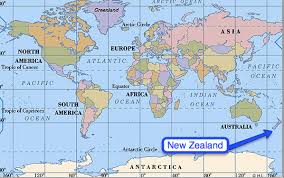
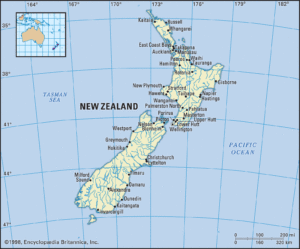
So success in New Zealand has culled any resistance. See the portrayal in the VIDEO here depicting the PM vs Opposition:
VIDEO 2 – Jacinda Ardern and Judith Collins go head to head on wage subsidy and Covid testing | nzherald.co.nz – https://youtu.be/I1RDlvL4VUo
nzherald.co.nz
Posted August 25, 2020 – National leader Judith Collins continues to press the Government in Question Time this afternoon over its decision not to extend the wage subsidy scheme and testing in managed isolation.Full story: http://nzh.tw/12359734
Subscribe: https://goo.gl/LP45jX
Check out our playlists: https://goo.gl/Swd249
Like NZ Herald on Facebook: https://goo.gl/tUC4oq
Follow NZ Herald on Instagram: https://goo.gl/oLicXe
Follow NZ Herald on Twitter: https://goo.gl/Wi6mbv
The Go Lean roadmap calls for the full execution of the strategies, tactics and implementations to plan and respond to disasters – pandemics have always been considered among the threats – the Clear and Present Dangers. These points had been embedded in the 2013 book and further refined by looking, listening and learning from other communities managing their own epidemic and infectious disease episodes. We previously considered these infectious diseases:
New Zealand provides a good role model for us in the Caribbean, Their pattern of Good Governance is consistent. We have looked, listened and learned from New Zealand before; they had provided other examples of Best Practices, beyond Pandemic Playbooks. See this sample of previous blog-commentaries featuring New Zealand:
| https://goleancaribbean.com/blog/?p=17267 | Way Forward – For Justice: Special Prosecutors – NZ examples abound |
| https://goleancaribbean.com/blog/?p=15075 | e-Government example in Zealand |
| https://goleancaribbean.com/blog/?p=14811 | New Zealand’s openness benefiting from International College Students |
| https://goleancaribbean.com/blog/?p=13746 | New Zealand’s Homeland Security preparedness with ANZUS Alliance |
| https://goleancaribbean.com/blog/?p=13579 | NZ reconciliation of Past Colonialism with Indigenous People |
| https://goleancaribbean.com/blog/?p=13155 | NZ use of Underwater Pipelines to connect remote islands to power grid |
| https://goleancaribbean.com/blog/?p=12447 | NZ’s Westminster but with mixed-member proportional representation |
| https://goleancaribbean.com/blog/?p=11989 | NZ’s Great Model as one of the first countries to allow Diaspora Voting |
The Coronavirus COVID-19 virus can be mastered; we see success in New Zealand. They have done it, so can we.
As related in the foregoing, New Zealand provides a great role model for the Caribbean in a number of subject areas; here is an additional one:
Both the Prime Minister and the Leader of the Opposition are women, Jacinda Ardern and Judith Collins respectively.
Perhaps, one reason for the efficiency and effectiveness of New Zealand’s government is that they draw upon the best people in-country, no matter the person’s gender. This point about Gender Equality aligns with another previous blog-commentary from November 14, 2015:
So how do we seriously consider reforming government in the Caribbean?
- Start anew.
- Start with politics and policy-makers.
- Start with the people who submit for politics, to be policy-makers
- Start with people who participate in the process.
Considering the status-quo of the region – in crisis – there is this need to start again. But this time we need more women.
The Caribbean member-states, individually and collectively, need the strategy of a Pandemic Playbook. This is a requirement for Good Governance; it mandates that we submit to Science and then Better Science.
Even our neighbor to the north, United States of America, can benefit from New Zealand’s example. as we related back on May 30, 2020 in this previous Go Lean commentary:
Good Leadership: Example – “Leader of the Free World”?
The current POTUS (President of the United States) – Donald Trump – is not to be credited as the “Leader of the Free World”. He has not provided a good example of Good Leadership. He is not ready, willing nor able. This is not our opinion alone …
We urge all Caribbean stakeholders – governments and citizens – to deploy an effective and efficient Pandemic Playbook for our region. This is the purpose of the Go Lean roadmap; this is how we can make the Caribbean homeland a better place to live, work and play.
New Zealand did it; we can too. So our vision, this quest is conceivable, believable and achievable. 🙂
About the Book
The book Go Lean…Caribbean serves as a roadmap for the introduction and implementation of the technocratic Caribbean Union Trade Federation (CU), for the elevation of Caribbean society – for all member-states. This CU/Go Lean roadmap has these 3 prime directives:
- Optimization of the economic engines in order to grow the regional economy to $800 Billion & create 2.2 million new jobs.
- Establishment of a security apparatus to ensure public safety and protect the resultant economic engines.
- Improve Caribbean governance to support these engines, including a separation-of-powers between the member-states and CU federal agencies.
The Go Lean book provides 370-pages of turn-by-turn instructions on “how” to adopt new community ethos, plus the strategies, tactics, implementations and advocacies to execute so as to reboot, reform and transform the societal engines of Caribbean society.
Download the free e-Book of Go Lean … Caribbean – now!
Who We Are
The movement behind the Go Lean book – a non-partisan, apolitical, religiously-neutral Community Development Foundation chartered for the purpose of empowering and re-booting economic engines – stresses that reforming and transforming the Caribbean societal engines must be a regional pursuit. This was an early motivation for the roadmap, as pronounced in the opening Declaration of Interdependence (Pages 12 – 14):
x. Whereas we are surrounded and allied to nations of larger proportions in land mass, populations, and treasuries, elements in their societies may have ill-intent in their pursuits, at the expense of the safety and security of our citizens. We must therefore appoint “new guards” to ensure our public safety and threats against our society, both domestic and foreign. …
xi. Whereas all men are entitled to the benefits of good governance in a free society, “new guards” must be enacted to dissuade the emergence of incompetence, corruption, nepotism and cronyism at the peril of the people’s best interest. The Federation must guarantee the executions of a social contract between government and the governed.
xii. Whereas the legacy in recent times in individual states may be that of ineffectual governance with no redress to higher authority, the accidence of this Federation will ensure accountability and escalation of human and civil rights of the people for good governance, justice assurances, due process and the rule of law. As such, any threats of a “failed state” status for any member state must enact emergency measures on behalf of the Federation to protect the human, civil and property rights of the citizens, residents, allies, trading partners, and visitors of the affected member state and the Federation as a whole.
xvi. Whereas security of our homeland is inextricably linked to prosperity of the homeland, the economic and security interest of the region needs to be aligned under the same governance. Since economic crimes … can imperil the functioning of the wheels of commerce for all the citizenry, the accidence of this Federation must equip the security apparatus with the tools and techniques for predictive and proactive interdictions.
xxxiii. Whereas lessons can be learned and applied from the study of the recent history of other societies, the Federation must formalize statutes and organizational dimensions to avoid the pitfalls of communities like … . On the other hand, the Federation must also implement the good examples learned from developments/communities like … [New Zealand].
Sign the petition to lean-in for this roadmap for the Caribbean Union Trade Federation.
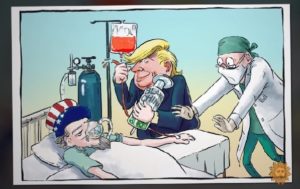
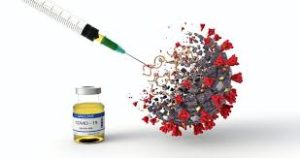 Is it worth it to “hang in there”? This is a question for us in the Caribbean as well. The world is enduring the Coronavirus COVID-19 pandemic crisis; it is wreaking havoc on the world’s economic engines – $250 Billion a day in losses – and Public Health deliveries. The only hope is a vaccine, of which there are a number of them in development (Phase I – Test Tubes, Phase II – Lab Mice, Phase III – Human Trials).
Is it worth it to “hang in there”? This is a question for us in the Caribbean as well. The world is enduring the Coronavirus COVID-19 pandemic crisis; it is wreaking havoc on the world’s economic engines – $250 Billion a day in losses – and Public Health deliveries. The only hope is a vaccine, of which there are a number of them in development (Phase I – Test Tubes, Phase II – Lab Mice, Phase III – Human Trials). 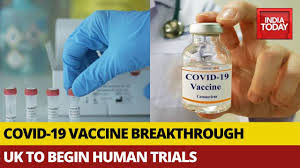 Please note: You will not be a Guinea Pig; those were the rodent-like creatures that functioned as Lab Mice. Also, you are not a part of the Human Trials. So at the point that the vaccine offer is made to you, many iterations of Quality Assurance would have already been executed.
Please note: You will not be a Guinea Pig; those were the rodent-like creatures that functioned as Lab Mice. Also, you are not a part of the Human Trials. So at the point that the vaccine offer is made to you, many iterations of Quality Assurance would have already been executed.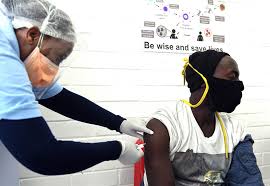 A big area of consideration must be past history:
A big area of consideration must be past history: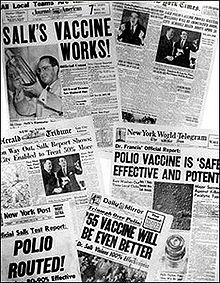
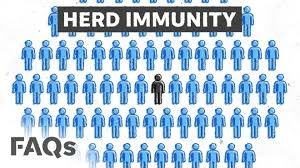


 We have no other choice but to contend with these challenges that come with participating in a vaccine program.
We have no other choice but to contend with these challenges that come with participating in a vaccine program. To be, or not to be, that is the question:
To be, or not to be, that is the question: When the going gets tough, the tough gets going – Old Adage
When the going gets tough, the tough gets going – Old Adage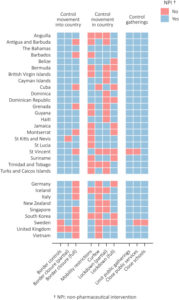

 My thimble runneth over! – Derisive Pun based on the Biblical expression “My cup runneth over”.
My thimble runneth over! – Derisive Pun based on the Biblical expression “My cup runneth over”. For many the answer can only be: My thimble runneth over!
For many the answer can only be: My thimble runneth over! NASSAU, BAHAMAS — Prime Minister Dr Hubert Minnis yesterday revealed the government is supporting the National Food Distribution Task Force with $1 million per week to assist more than 110,000 people.
NASSAU, BAHAMAS — Prime Minister Dr Hubert Minnis yesterday revealed the government is supporting the National Food Distribution Task Force with $1 million per week to assist more than 110,000 people.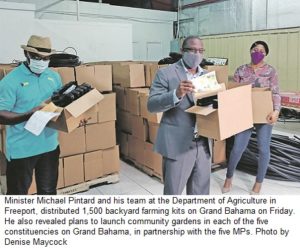 AGRICULTURE and Marine Resources Minister Michael Pintard relaunched the Backyard Farming Programme on Friday, distributing 1,500 backyard kits here on Grand Bahama.
AGRICULTURE and Marine Resources Minister Michael Pintard relaunched the Backyard Farming Programme on Friday, distributing 1,500 backyard kits here on Grand Bahama.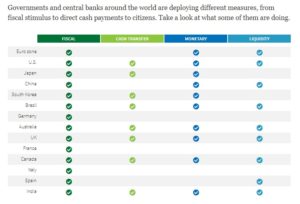
 Welcome to the … Bubble.
Welcome to the … Bubble. The 2020 NBA Bubble, also referred to as the Disney Bubble
The 2020 NBA Bubble, also referred to as the Disney Bubble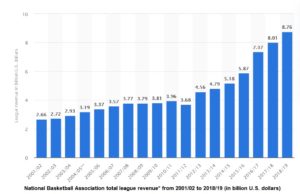
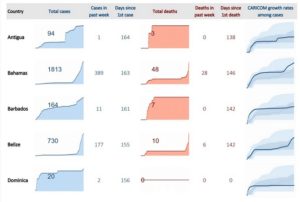
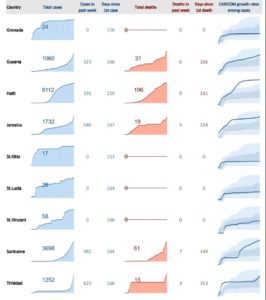
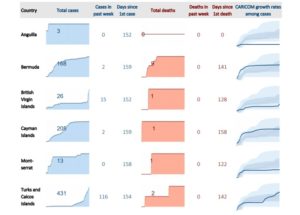
 The Battle 4 Atlantis is an early-season
The Battle 4 Atlantis is an early-season 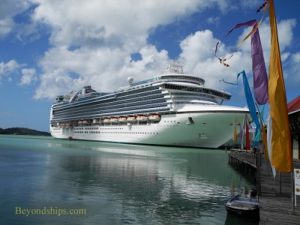 Royal Caribbean is considering
Royal Caribbean is considering 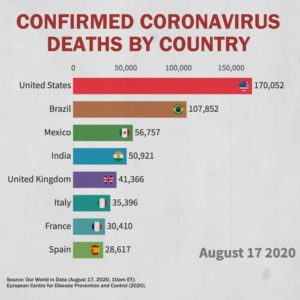
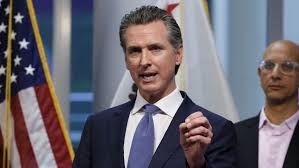 New guidance on coronavirus testing and travel issued by the Centers for Disease Control and Prevention drew strong pushback from California officials Wednesday.
New guidance on coronavirus testing and travel issued by the Centers for Disease Control and Prevention drew strong pushback from California officials Wednesday.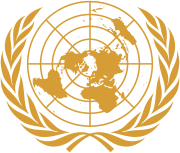 The World Health Organization (WHO) is a
The World Health Organization (WHO) is a  The WHO has played a leading role in several public health achievements, most notably the
The WHO has played a leading role in several public health achievements, most notably the 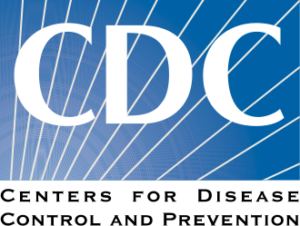 The Centers for Disease Control and Prevention (CDC) is a
The Centers for Disease Control and Prevention (CDC) is a  PAHO has scientific and technical expertise at its headquarters, in its 27 country offices, and its three Pan American centers, all working with the countries of the Americas in dealing with priority health issues. The health authorities of PAHO’s Member States set PAHO’s technical and administrative policies through its Governing Bodies. PAHO Member States include all 35 countries in the Americas;
PAHO has scientific and technical expertise at its headquarters, in its 27 country offices, and its three Pan American centers, all working with the countries of the Americas in dealing with priority health issues. The health authorities of PAHO’s Member States set PAHO’s technical and administrative policies through its Governing Bodies. PAHO Member States include all 35 countries in the Americas; 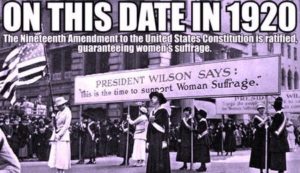 Why does it take so long …
Why does it take so long …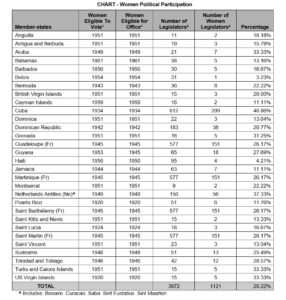
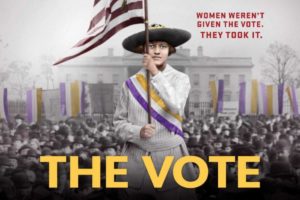 So “
So “ Yes, we can …
Yes, we can …